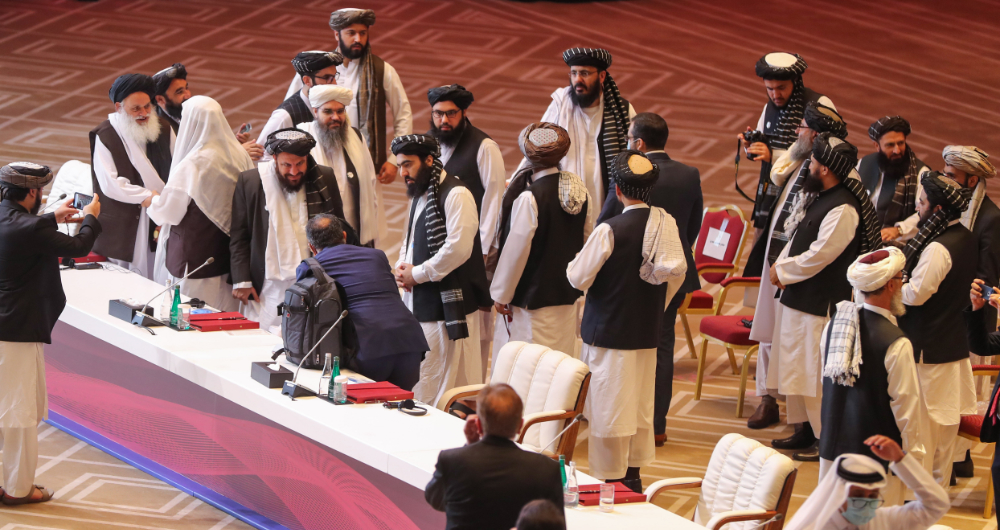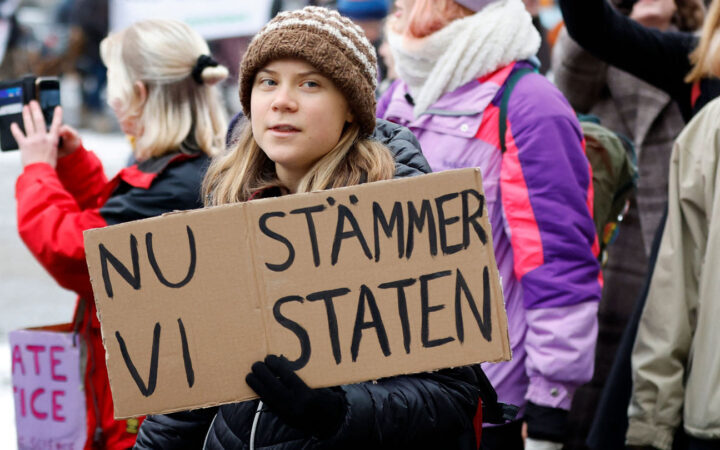KABUL: A team of government-appointed negotiators were expected to return from Doha, Qatar on Monday to “consult with authorities” on the next step for the intra-Afghan peace talks with the Taliban, after agreeing to ground rules with the insurgent group for the US-sponsored process.
“The delegation will return later (today) to Kabul for consultation with authorities and government leadership, not for rest,” Habiba Sarabi, a member of the Afghan government-appointed team, told Arab News. “The Taliban have also gone for consultations. Both sides have agreed on this.”
The Qatar talks, which began on Sept. 12, were held after a historic deal was signed between the US and the Taliban in February.
The talks coincided with an escalation in violence across Afghanistan, which has seen hundreds of civilians killed, while more than 35,000 have been displaced in Helmand, one of the worst affected provinces in the country.
However, despite holding the talks for more than three months, the two teams were able to break an impasse only about a week ago by setting ground rules for the crucial dialogue.
Naji Anwari, a spokesman for the government’s Ministry of Peace Affairs, told Arab News that the team’s return was “essential for the fast advancement of the remaining peace process with the leadership of the government and the political elite.”
Zabihullah Mujahid, a Taliban spokesman, confirmed to Arab News that the negotiators “had also begun discussions with their leadership and would return to Qatar on Jan. 5” for the resumption of talks with Kabul.
Meanwhile, an anonymous source close to the Kabul team said that “a 28-article draft agenda has been handed over to the Taliban by the government.”
In return, the Afghan government has also given a 21-article draft agenda, which includes the formation of an interim government” to replace President Ashraf Ghani’s administration, who took office in March for a second five-year term.
Government officials were unavailable for comment when contacted by Arab News on Monday. However, Ghani, who was excluded from the secret talks and the February accord, has vehemently opposed the formation of an interim government.
On Sunday, the president’s adviser, Waheed Omer, said during a press conference: “An interim government is a mirage. Returning to the past is a false, imaginary hope.”
Afghan Foreign Minister Haneef Atmar echoed those thoughts on Monday.
“(The) international community wants the peace settlement to be based on values and is in favor of a system in which democracy is respected,” he told the Afghan Parliament.
“The international community has voted for a peace that preserves the republic, the constitution and achievements of the past years,” he added, highlighting the period after the Taliban’s ouster in a US-led invasion in 2001.
A key reason for the impasse in the intra-Afghan talks has been the Taliban’s insistence on using the conditions set in the deal with Washington, which government delegates finally agreed to over a week ago.
The February accord sought the complete withdrawal of US troops from Afghanistan by next spring, and thousands have since departed.
It also demanded that the Taliban cut ties with foreign militants and ensure that areas under their control were not used against any nation, including US interests.
Ghani is reportedly keen on prolonging the duration of the foreign troops’ stay in the country, with his government urging US President-elect Joe Biden to review the deal with the Taliban, and to retain some troops in Afghanistan to avoid it from regaining power by force, as in the mid-1990s.
Earlier this week, Ghani’s government pressed upon the need for Afghanistan to be “the real venue of the talks,” adding that the Taliban “can choose any region in the country which the group prefers.”
Rahmatullah Nabil, a former Afghan intelligence chief, linked the various factors for the three weeks break in Qatar talks to “both the Taliban and Kabul waiting to hear Biden’s policy on Afghanistan.”
He told Arab News: “Taliban and government delegates lack any commonalities on the agenda for the talks, and both sides require consultation over the issues mentioned in the agenda.
“Many of the facilitators in the Qatar talks were foreigners, and needed to take time off for Christmas and the new year,” he added.
Experts reason that the three-week break could prove to be a “vantage point” for both the teams.
“Ghani may look to test the new administration in (Washington) and position his maneuvers that way. The Taliban dragging out the talks will favor them more than Kabul, as frustration will grow among the Afghan government’s international backers,” Zabihullah Pakteen, an analyst, told Arab News.
“One can say it is all about positioning, consultations and consolidation of influence over the rivals within their camps,” he added.

Afghan government, Taliban to resume peace talks in JanuaryAfghan government, Taliban announce breakthrough deal to press on with peace talks

 A new treatment could restore some mobility in people paralyzed by strokes
A new treatment could restore some mobility in people paralyzed by strokes  What has Perseverance found in two years on Mars?
What has Perseverance found in two years on Mars?  This robot automatically tucks its limbs to squeeze through spaces
This robot automatically tucks its limbs to squeeze through spaces  Greta Thunberg’s new book urges the world to take climate action now
Greta Thunberg’s new book urges the world to take climate action now  Glassy eyes may help young crustaceans hide from predators in plain sight
Glassy eyes may help young crustaceans hide from predators in plain sight  A chemical imbalance doesn’t explain depression. So what does?
A chemical imbalance doesn’t explain depression. So what does?